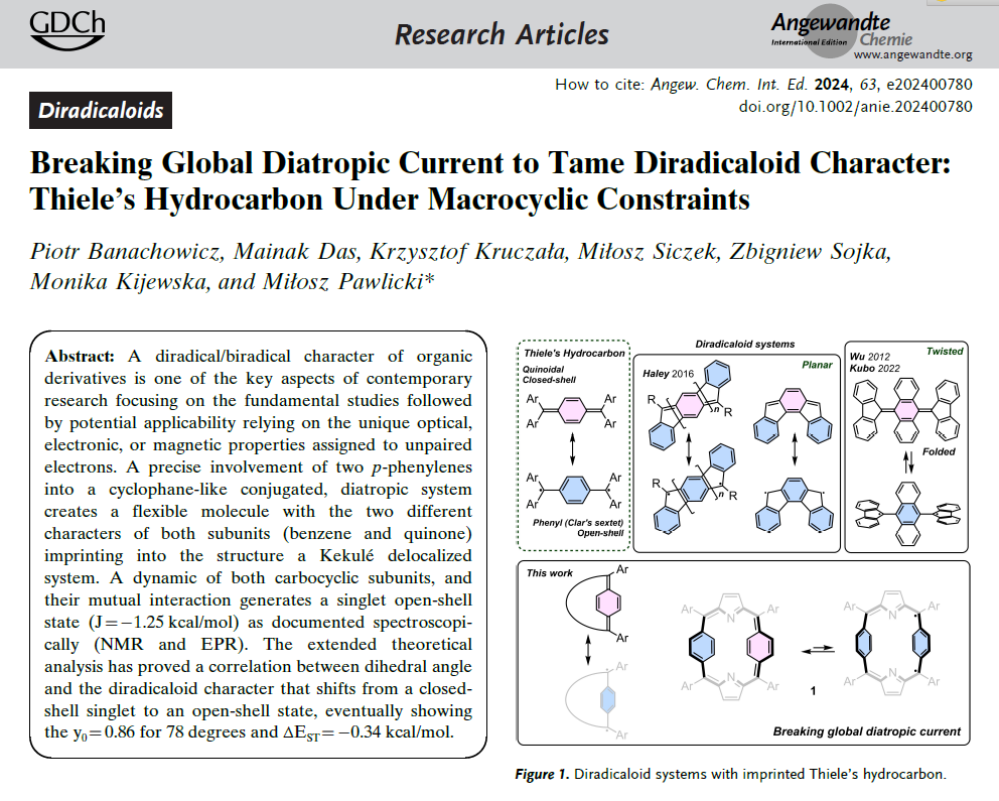A collaboration of Prof. Miłosz Pawlicki from Functional Organic Materials Team with Prof. Krzysztof Kruczała and Prof. Zbigniew Sojka from our Faculty and Dr Monika Kijewska, D.Sc. from Department of Chemistry, Wrocław University has resulted in the scientific paper entitled: „Breaking Global Diatropic Current to Tame Diradicaloid Character: Thiele’s Hydrocarbon Under Macrocyclic Constraints” that has been published in Angewandte Chemie – International Edition.
This article describes a modification of the electron structure with two unpaired electrons imprinted into a dynamic, macrocyclic skeleton based on fully organic construction that stabilizes the open-shell character of the diradicaloid spin system. A detailed analysis with spectroscopic techniques supported by theoretical calculations showed a significant lowering of the singlet-triplet energy barrier DEST to ~0.5 kcal/mol (with a preference for singlet state). A p-cyclophane-like construction leads to the dynamic behavior of the obtained system. It opens new possibilities for stabilization of a specific electron state within a closed-shell singlet, an open-shell singlet, or a triplet, depending on the frozen geometry ,and it is also stabilized by the macrocyclic constraints. The published results open new perspectives for utilizing a quinone-benzene equilibrium in dynamic skeletons that potentially allow complete control of the spin-state of organic derivatives, either closed-shell (singlet) or open-shell (triplet). Among the others, those features are essential in efficient interaction with the light.
The research was conducted with support from the National Science Centre, Poland, in the frames of the research project OPUS (project no. 2019/35/B/ST4/00318) and the National Agency for the Academic Exchange in the frames of the Ulam Fellowship granted to Dr. Mainak Das.
Congratulations to the Authors!
According to the list of scientific journals and peer-reviewed materials of international conferences of the Ministry of Education and Science, the number of points assigned to Angew. Chem. Int. Ed. is 200 (2-year Impact Factor = 16.6)
Angew. Chem. Int. Ed. 2024, 63, e202400780


